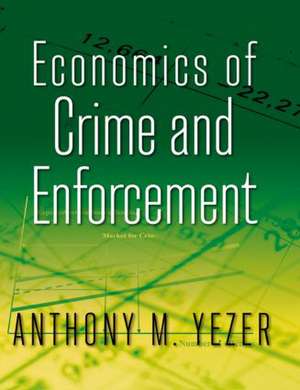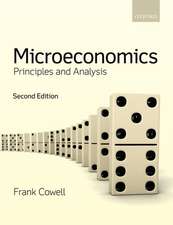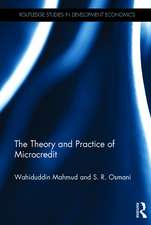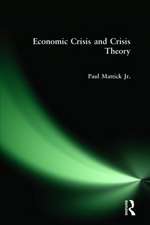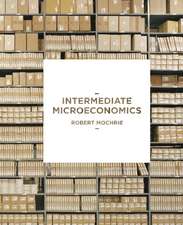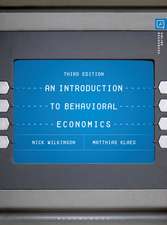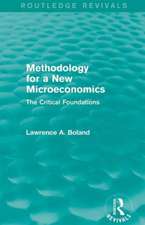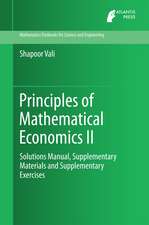Economics of Crime and Enforcement
Autor Anthony M. Yezeren Limba Engleză Hardback – 18 sep 2014
Preț: 606.32 lei
Preț vechi: 844.37 lei
-28% Nou
Puncte Express: 909
Preț estimativ în valută:
116.06€ • 126.11$ • 97.55£
116.06€ • 126.11$ • 97.55£
Carte tipărită la comandă
Livrare economică 21 aprilie-05 mai
Preluare comenzi: 021 569.72.76
Specificații
ISBN-13: 9780765637109
ISBN-10: 0765637103
Pagini: 368
Dimensiuni: 189 x 246 x 23 mm
Greutate: 0.96 kg
Ediția:1
Editura: Taylor & Francis
Colecția Routledge
Locul publicării:Oxford, United Kingdom
ISBN-10: 0765637103
Pagini: 368
Dimensiuni: 189 x 246 x 23 mm
Greutate: 0.96 kg
Ediția:1
Editura: Taylor & Francis
Colecția Routledge
Locul publicării:Oxford, United Kingdom
Public țintă
General, Postgraduate, and UndergraduateCuprins
Introduction Part I: Fundamental Economics of Crime and Enforcement 1. The Economic Rationale for the Criminal Law 2. Benefit/Cost Analysis of the Enforcement Decision 3. Measuring the Amount and Cost of Crime Part II: Applying Economic Theory to Crime 4. The Market for "Victimless" Crime 5. The Market for Crime with Victims 6. Risk Preferences and the Supply of Offenses 7. The State Preference Model and the Economics of Tax Evasion 8. Modeling Neighborhood Crime and Self-Enforcement 9. Enforcement Games Part III: Use of Statistical Analysis in Research on Crime 10. Statistical Problems in Testing Models of Crime 11. Implicit Market Measures of the Benefits of Crime Control Part IV: Economics of Specific Enforcement Issues 12. Economics of Incarceration: Deterrence and Incapacitation 13. Economics of Three-Strikes Legislation 14. Juvenile Crime 15. Neighborhood Gangs 16. Economic Effects of Private Enforcement 17. The Broken Windows Hypothesis 18. Crime and Economic Development 19. Guns and Crime 20. Drugs and Crime 21. Economics of Profiling 22. Deterrence and Capital Punishment
Notă biografică
Anthony Yezer is Professor of Economics at George Washington University where he directs the Center for Economic Research.
Descriere
The object of this book is to acquaint the reader with the vast literature in economics on the rationale for, and effects of, criminal law. The author shows how the standard tools of microeconomic theory, which are used in other fields, also apply to crime and enforcement issues.
